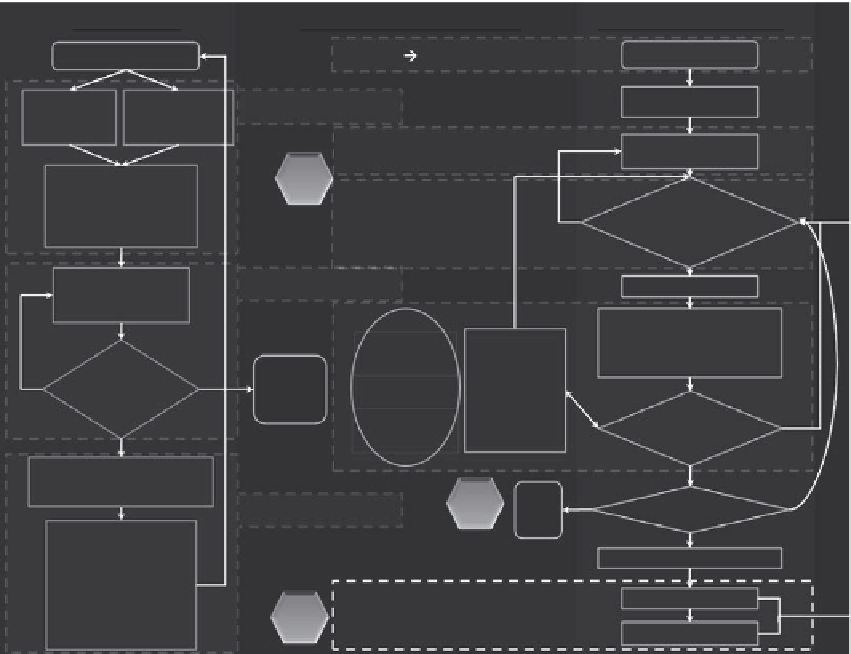Biomedical Engineering Reference
In-Depth Information
User's actions
AT Assessment components
Center for technical aid
ICF factors
(user request)
START
User/client REQUEST
Request to
solve activity
limitations
Contact
Request to solve
environmental
restrictions
User seeking solution
Clinical measures, functional
analysis, and psycho-socio-
environmental evaluations
User data collection
ψ
Providing history
(medical, rehabilitation,
support use) and
psycho-socio-
environmental data
1
Multidisciplinary
team meeting
for:
Data elaboration
- user data valuation
and - setting design
NOT
User subjective
evaluation of
technological aids
User checking solution
Setting set-up
Matching process:
- assistive solution
proposal
- assistive solution
user-trial
- assistive solution
outcome
Environmental
assessment
process (
see
the Usability
and
Accessibility
evaluation
diagram
)
Te chnological
aid selection
User
evaluation of
assistive
solution
Temporary
or
permanent
EXIT
NOT
NOT
Assistive solution
Environmental
evaluations
Multidisciplinary
team evaluation
NOT
Assistive solution obtained:
public health system or
public/private insurance
ψ
User
agreement
2
User living solution
EXIT
NOT
NOT
Short/long-term use
-Effectiveness
-Eciency
-Usability
-Personal, emotional,
social, comfort with use
-Subjective well-being
-Benefit
Assistive solution provision
Personal well-being, user
satisfaction, and benefit
from use
User support
ψ
3
Follow up
FIgUre 8.1
Flow chart of the ATA process in a center for technical aid: the ATA process can be read both from the perspec-
tive of the user/client or from the perspective of the centre for technical aid. The central column indicates the
ATA components. The three blue hexagons with a “ψ” point out where the clinical psychologist's competencies
are specifically requested.
1. Acceptance and evaluation of the user's request (ψ hexagon 1)
a.
User data collecting
: When the user provides data to the center for technical aid,
data are collected; then, the case is opened and transmitted to the multidisci-
plinary team. All of the clinical measures, functional analyses, and psycho-
socio-environmental evaluations provided by the user/client are analyzed by
the clinical psychologist to: (i) profile, within the limits of the data collected,
the user/client according to a bio-psycho-social and holistic perspective; and
(ii) draw up a psychological report for the following multidisciplinary team
evaluation
.
b.
Meeting with the multidisciplinary team
: The multidisciplinary team evaluates
the user's request and data. The clinical psychologist's tasks at this stage are
(i) to emphasize the unique and peculiar aspects of the case represented by
the user/client in terms of personal factors and of his or her human and rela-
tional context of life; (ii) to advocate the user/client's request in the multi-
disciplinary team; and (iii) to facilitate team members' communications and
solution-seeking in the interest of the user/client.


